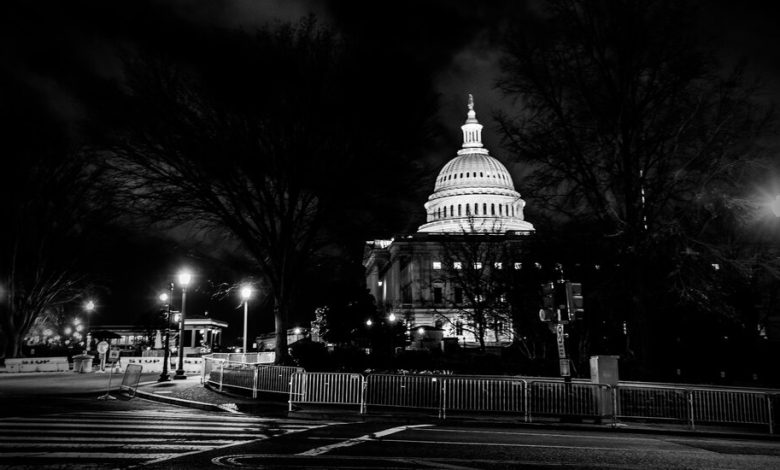I Was on the Church Committee. The New Republican Version Is an Outrage.

denizli escort,
denizli escort,
denizli escort,
denizli escort,
denizli escort,
denizli escort,
denizli escort,
adana escort,
adana escort,
adana escort,
adana escort,
adana escort,
malatya escort,
malatya escort,
eskişehir escort,
eskişehir escort,
manisa escort,
izmit escort,
izmit escort,
izmit escort,
izmit escort,
izmit escort,
izmit escort,
izmit escort,
izmit escort,
izmit escort,
ısparta escort,
ankara escort,
To legitimize otherwise questionable investigations, Congress occasionally labels them after a previous successful effort. Thus, the new Republican-controlled House of Representatives’ proposed select committee, which plans to investigate the “weaponization of government,” is being described as “the new Church committee,” after the group of senators who investigated the F.B.I., the C.I.A. and other groups from 1975-76.
As the last surviving member of the original Church committee, named after its chairman, the late Senator Frank Church of Idaho, I have a particular interest in distinguishing what we accomplished then and what authoritarian Republicans seem to have in mind now.
The outlines of the committee, which Rep. Jim Jordan will assemble, remain vague. Reading between the rhetorical lines, proponents appear to believe agencies of the national government have targeted, and perhaps are still targeting, right-of-center individuals and groups, possibly including individuals and right-wing militia groups that participated in the Jan. 6, 2021, insurrectionist attack on the Capitol.
That is almost completely at odds with the purpose of the original Church committee, which was founded in response to widespread abuses by government intelligence agencies. While we sought to protect the constitutional rights and freedoms of American citizens, we were also bound to protect the integrity of the intelligence and security agencies, which were founded to protect those freedoms, too.
Our committee brought U.S. intelligence agencies under congressional scrutiny to prevent the violation of the privacy rights of American citizens, and to halt covert operations abroad that violated our constitutional principles. Rather than strengthening the oversight of federal agencies, the new committee seems designed to prevent law enforcement and intelligence agencies from enforcing the law — specifically, laws against insurrectionist activity in our own democracy.
It is one thing to intercept phone calls from people organizing a peaceful civil rights march and quite another to intercept phone calls from people organizing an assault on the Capitol to impede the certification of a national election.
Rather than weaken our intelligence and law enforcement agencies, the Church committee sought to restore their original mandates and increase their focus away from partisan or political manipulation. Our committee was bipartisan, leaning neither right nor left, and the conservative senators, including the vice chair, John Tower, Barry Goldwater, Howard Baker and others, took pains to prevent liberal or progressive members, including chairman Church, Philip Hart, Walter Mondale and me, from weakening our national security.
They needn’t have bothered. We all understood, including me, the youngest member, that attacks on federal law enforcement and national security would not go down well among our constituents. Unlike in the 1970s, today’s threat to domestic security is less from foreign sources and more from homeland groups seeking to replace the constitutional order with authoritarian practices that challenge historic institutions and democratic practices.
Among a rather large number of reforms proposed by the Church committee were permanent congressional oversight committees for the intelligence community, an endorsement of the 1974 requirement that significant clandestine projects be approved by the president in a written “finding,” the notification of the chairs of the oversight committees of certain clandestine projects at the time they are undertaken and the elimination of assassination attempts against foreign leaders.
Despite the concern of conservatives at the time, to my knowledge, no significant clandestine activity was compromised and no classified information leaked as a result of these reforms in the almost half-century since they were adopted. In fact, the oversight and notification requirements, by providing political cover, have operated as protection for the C.I.A.
Evidence was provided of the effectiveness of these reforms in the so-called Iran-contra controversy in 1985-87. The Reagan administration sold arms to Iran and used the proceeds to finance covert operations in Nicaragua against its socialist government. Assigning accountability for this scheme proved difficult until a document authorizing it was located in the White House. President Reagan did not remember signing it; however, it bore his signature. This kind of accountability would not have been possible before our reforms were adopted.
The rules of the Senate and the House establish what standing committees and what special committees each house may create. The House is clearly at liberty within those rules to create a committee to protect what it perceives to be an important element of its base. And if its purposes are ultimately to protect authoritarian interests, it is presumably free to do so and accept criticisms from the press and the public. It is outrageous to call it a new Church committee. Trying to disguise a highly partisan effort to legitimize undemocratic activities by cloaking it in the mantle of a successful bipartisan committee from decades ago is a mockery.
Gary Hart is a former United States senator from Colorado and the author of, most recently, “The Republic of Conscience.”
The Times is committed to publishing a diversity of letters to the editor. We’d like to hear what you think about this or any of our articles. Here are some tips. And here’s our email: [email protected].
Follow The New York Times Opinion section on Facebook, Twitter (@NYTopinion) and Instagram.